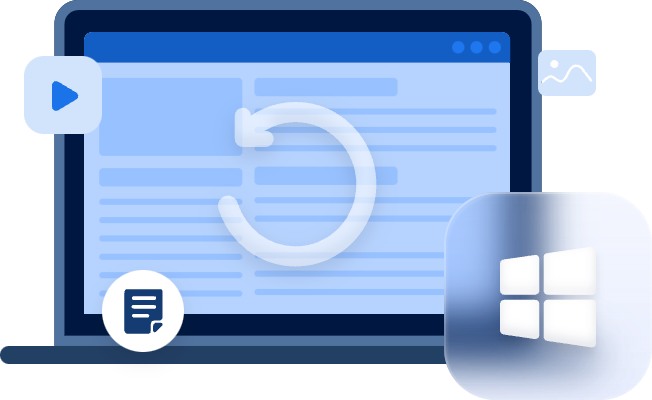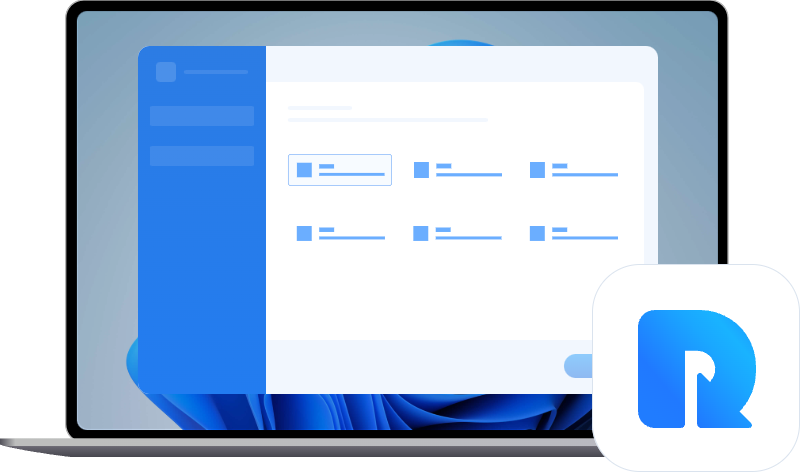A Comprehensive Guide to Toshiba Laptop Problems Fixes and Data Recovery
This article delves into the complexities of Toshiba laptop issues, providing readers with comprehensive insights into user cases, reasons behind problems, potential risks, and effective fixes. Please explore the functionality of MyRecover in recovering deleted files from Toshiba laptop hard drives.
In the realm of real-world scenarios, users grapple with a myriad of challenges when it comes to their Toshiba laptops. The spectrum of issues spans from unexpected shutdowns to sluggish performance, with each problem presenting a unique set of frustrations. One prevalent user case involves the abrupt freezing of the system during critical tasks, leaving users in a state of bewilderment and urgency.
Unraveling the Reasons for Toshiba Laptop Problems
The landscape of Toshiba laptop problems is diverse and multifaceted, with origins rooted in various sources. Identifying the root cause becomes a pivotal step toward effective troubleshooting.
Outdated drivers, conflicts within software, and hardware malfunctions stand out as primary culprits. Users may find themselves grappling with difficulties arising from incompatible applications or inadequate system resources.
Potential Risks Lurking Behind Toshiba Laptop Problems
While it might be tempting to overlook seemingly minor laptop issues, the potential risks associated with neglecting them can be profound. Increased vulnerability to data loss, compromised security, and even irreversible damage to hardware components are becoming threats.
It becomes imperative for users to address these problems promptly, not only to safeguard their data but also to ensure the longevity and optimal performance of their Toshiba laptops.
Feasible Fixes for Toshiba Laptop Problems
1. Update Drivers and Software: Keeping Pace with Evolution
Outdated drivers can significantly contribute to performance issues on Toshiba laptops. To update your drivers and software, follow these steps:
1. Identify Drivers: Use the Device Manager to identify outdated drivers. Right-click on the device, select "Properties," and navigate to the "Driver" tab.
2. Download Updates: Visit the official Toshiba website or use Windows Update to download the latest driver updates. Install them as directed.
3. Update Software: Regularly check for updates for your operating system and other installed software. Enable automatic updates where possible.
This proactive measure aids in addressing potential conflicts and maintaining the stability of the system.
2. Check for Malware: Safeguarding Against Digital Threats
Malicious software poses a significant threat to the performance of Toshiba laptops. Run a thorough antivirus scan using the following steps:
1. Choose a Reliable Antivirus Program: Ensure your antivirus software is up-to-date and reputable.
2. Initiate a Full System Scan: Perform a comprehensive system scan to detect and remove potential threats.
3. Quarantine and Remove: Quarantine identified threats and follow the software's prompts to remove them.
This ensures a secure and efficient computing environment.
3. Monitor System Resources: Balancing Act for Optimal Performance
Inadequate RAM or an overloaded CPU can lead to performance slowdowns. Utilize the Task Manager to identify resource-intensive processes:
1. Open Task Manager: Right-click on the taskbar and select "Task Manager" or press "Ctrl + Shift + Esc."
2. Check Resource Usage: Navigate to the "Performance" tab to monitor CPU, memory, disk, and network usage.
3. Close Unnecessary Applications: Identify resource-heavy processes and close unnecessary applications.
This strategy helps restore balance and enhance overall system performance.
4. Address Hardware Problems: Tackling the Core Issues
Hardware-related problems, such as faulty RAM or overheating, can contribute to disruptions in Toshiba laptops. To address hardware issues, follow these steps:
1. Run Hardware Diagnostics: Many Toshiba laptops come with built-in diagnostics. Access them during the boot process to identify hardware problems.
2. Check Temperature: Use third-party software to monitor your laptop's temperature. Clean the cooling system and ensure proper ventilation.
3. Consult Professional Support: If issues persist, consult Toshiba's support or seek professional assistance to diagnose and resolve hardware-related problems.
Recovering Deleted Files with MyRecover: A Step-by-Step Guide
Accidentally deleting crucial files can be a nightmare, but MyRecover emerges as the knight in shining armor with its user-friendly interface and powerful data recovery capabilities. Here's a step-by-step guide:
1. Download and Install MyRecover: Begin by downloading MyRecover from the official website and following the installation wizard.
2. Launch the Program: Once installed, launch MyRecover. The main interface will display available drives.
3. Select the Drive: Choose the drive from which you want to recover files and click "Next."
4. Scan for Deleted Files: Select the scan type (quick or deep) and initiate the scan. MyRecover will analyze the drive and list recoverable files.
5. Preview and Select Files: Preview the recoverable files, select the ones you want to recover, and click "Restore."
This robust tool ensures a seamless recovery of deleted files and contributes to an uninterrupted laptop experience.
In Conclusion:
Traversing the landscape of Toshiba laptop problems becomes an empowering journey with a proactive approach.
By understanding user cases, identifying root causes, and addressing potential risks, users can navigate the intricate terrain of laptop troubleshooting with confidence. MyRecover stands as a reliable ally, ensuring the seamless recovery of deleted files and contributing to an uninterrupted laptop experience.
FAQs: Addressing Common Concerns about Toshiba Data Recovery
1. Is data recovery with MyRecover safe for my Toshiba laptop?
Absolutely. MyRecover employs advanced algorithms to ensure secure data recovery without posing any risks to your Toshiba laptop.
2. Can I use MyRecover for external hard drives connected to my Toshiba laptop?
Certainly! MyRecover supports external hard drives, providing a versatile solution for data recovery beyond your laptop's internal storage.
3. Are there any limitations to the file types MyRecover can recover?
MyRecover boasts versatility in recovering a wide range of file types, including documents, photos, videos, and more, ensuring a comprehensive data retrieval experience.
4. How frequently should I update drivers on my Toshiba laptop?
Regular updates are key to maintaining optimal performance. Aim for monthly checks and updates to keep your Toshiba laptop running smoothly.
5. What should I do if MyRecover fails to recover my files?
In rare cases of unsuccessful recovery, reach out to MyRecover's support for personalized assistance and guidance tailored to your specific situation.


